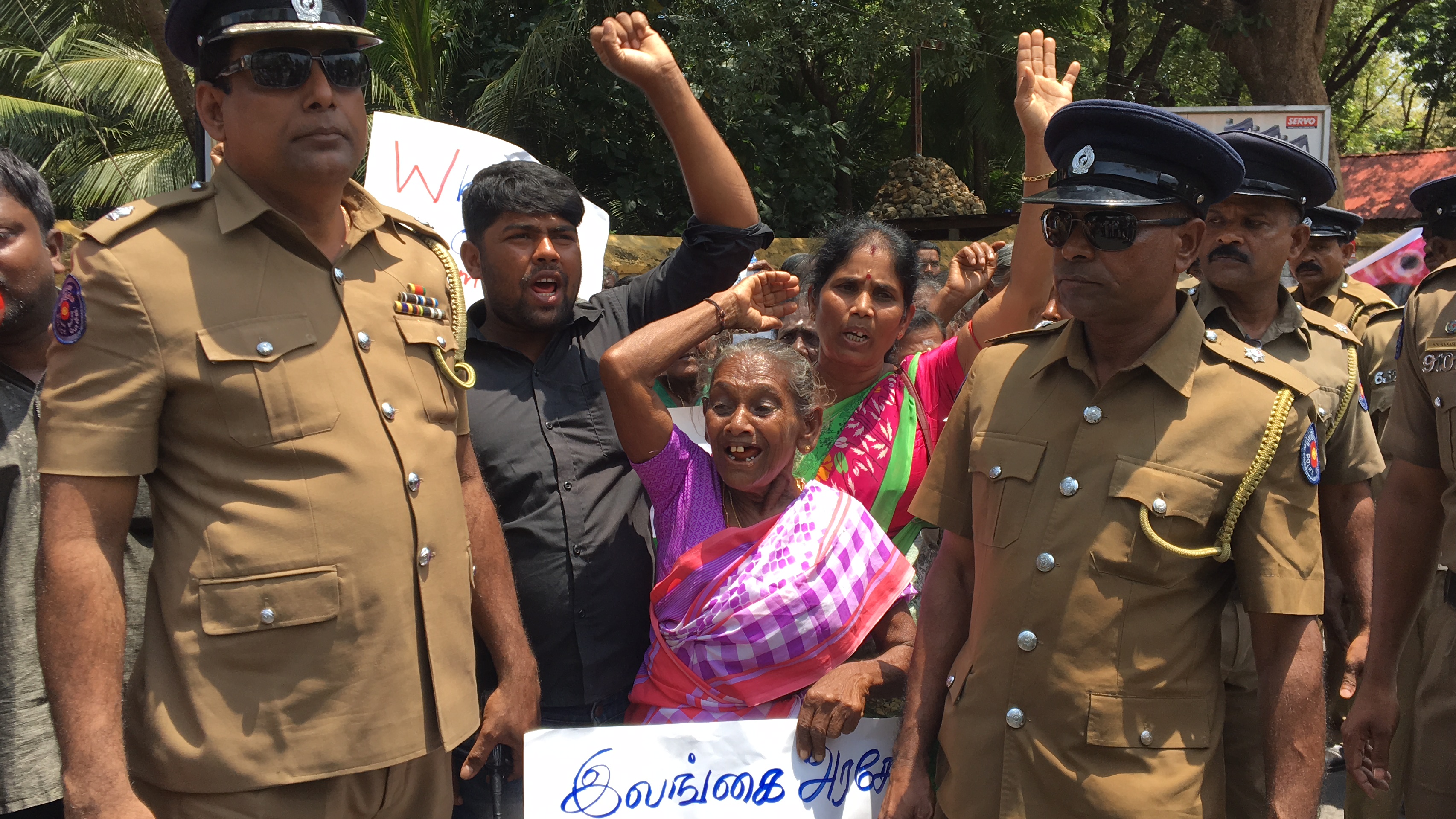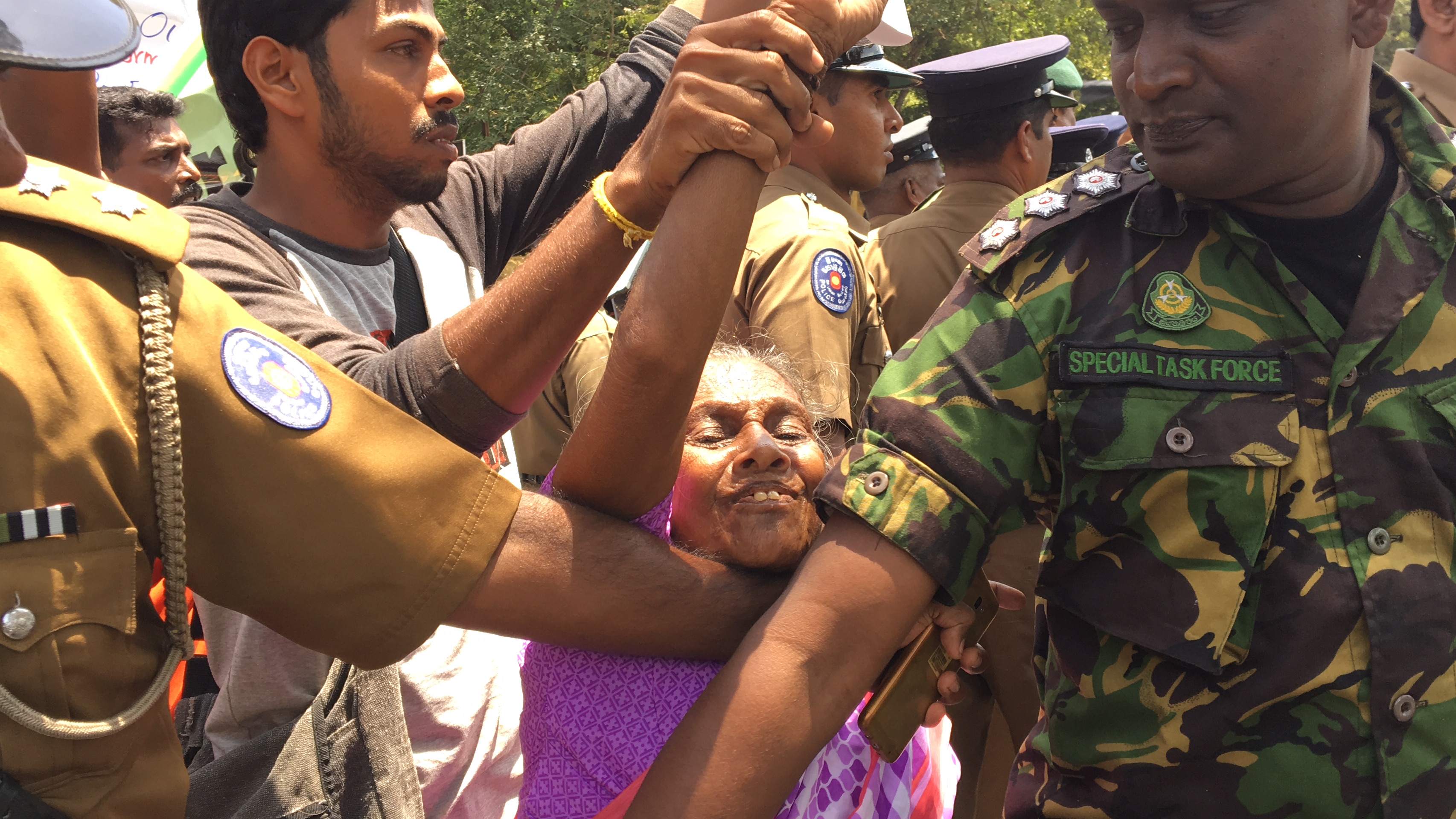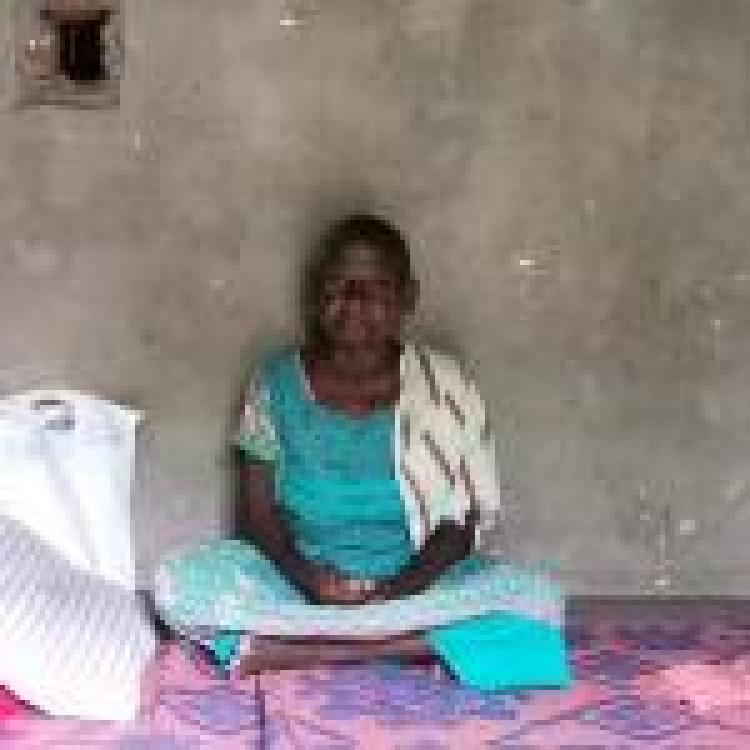In 2008, Thangarasa Selvarani’s son Thangarasa Thayaparan, then aged 28, was taken by the Sri Lankan army in front of her eyes.
It was 7 days after the birth of his child. He was sleeping outside their home in Cheddikulam, Vavuniya, after a day of wage labour, loading sand into trucks.
Selvarani told him to sleep inside, it was dark and the barking of the street dogs was out of character.
He said it was too hot, and he wanted to sleep outside.
At around 9pm, Selvarani heard a cry and went outside to see that around 30 or 40 soldiers had rounded the house and were carrying her son off.
He yelled “Amma,” and she ran and grabbed hold of him. The soldiers prised her off and beat her. Selvarani’s female cousin also tried to intervene and was beaten, suffering a permanent hip injury.
That was the last thing he ever said to her.
“I went to every army camp,” Selvarani said. “They each said we didn’t take him, check at the other camp.”
“I know it was the Cheddikulam army that took him.”
Several young Tamil men were abducted that day in a Sri Lankan army round up.
In the same year, Selvarani’s son-in-law Thampu Thiyagarasa, then aged 42, and grandson Thiyagarasa Manokaran then aged 17 were abducted by the army while collecting firewood in the area.
Selvarani went to the CID. She went to Colombo.
She protested for over 5 years on the roadside. She wanted only answers.
Instead she was offered an Office of Missing Persons, death certificates, and compensation. Even though she barely earned enough to survive through her daily manual labour, she rejected them all.
"I want to see them one last time before I die. That's why I'm holding on," she said in 2018.
This week, Selvarani passed away, becoming one of over 115 Tamils to have died while protesting for their forcibly disappeared family members, with no answers, and no justice.
Footage and photos from Tamil Guardian archive, 2018.



